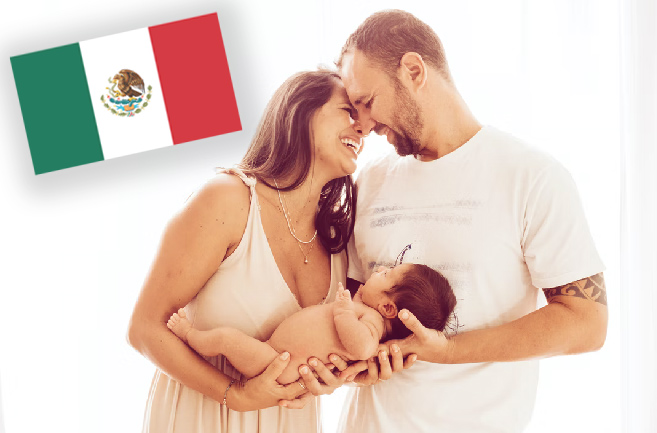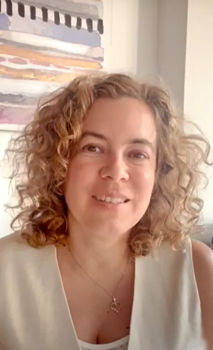IVF Cost in Mexico
Most patients pay between $4,500 and $7,500 USD for a full IVF cycle in Mexico. Keep scrolling to see what is included, what is extra, how prices compare between clinics, and a comparison between Mexico, the United States, and Canada.
 Medically reviewed by Dr. Alejandro Castillo Peláez
Medically reviewed by Dr. Alejandro Castillo Peláez
 Written and updated by Michaël Veillette
Written and updated by Michaël Veillette
How much does IVF cost in Mexico?
If IVF feels completely out of reach where you live, you’re far from the only one.
According to the American Society for Reproductive Medicine (ASRM) and the Canadian Fertility & Andrology Society (CFAS), cost is a major factor (the most important one in my opinion) influencing cross-border fertility care decisions.
Many families across the U.S. and Canada are now looking toward Mexico, where they can receive modern, physician-led fertility care at a much more manageable cost, and without lowering medical standards in any way.
In this guide, we break down the real IVF costs in Mexico for 2026, why prices vary from one clinic to another, what each package typically includes, and how to compare options safely.
While we're at it, why not reveal our own prices for fertility procedures.
Here is our updated price list, with no hidden costs: Enlistalo Fertilidad Pricing
Now, here is a detailed comparison of Mexico's largest clinics (Ingenes, LIV) versus more independent clinics:
Ingenes - Multiple locations
Price model
Package-based (single or multi-cycle). ≈ $11,000–$16,000 USD. Medications usually extra. PGT extra.
What’s included
Retrieval(s) and transfers from that retrieval. ICSI sometimes included depending on package.
Important constraints
• You must use all embryos before another retrieval.
• Embryo banking across retrievals is not allowed.
• Two retrievals in a row before transfer is not allowed.
• Unused cycles are forfeited after a live birth.
Best fit if you…
Want a structured program, are comfortable following clinic rules, and are doing IVF for the first time.
Logistics
Border travel and rigid scheduling are commonly reported. English support varies by staff.
Ingenes website
LIV Fertility – Puerto Vallarta
Price model
Package-style care. ≈ $16,000 USD in one reported case (PGT included).
What’s included
Retrieval, transfers and coordination. PGT was included in at least one patient report.
Important constraints
Less public detail about internal rules. Flexibility around embryo banking or multiple retrieval strategies is not clearly described in patient threads.
Best fit if you…
Want a guided, organized experience and value English-speaking coordination.
Logistics
Travel to Puerto Vallarta. Monitoring and testing are often done in the US.
LIV website
Independent / non-package clinics (Enlistalo type)
Price model
Pay-as-you-go. ≈ $9,000 USD for cycle and transfers. PGT usually extra.
What’s included
Retrieval and lab work. Some reports include multiple transfers. Medications are sometimes included.
Important constraints
• You handle most coordination yourself.
• Monitoring, travel and timing are your responsibility.
• English support varies a lot between clinics.
Best fit if you…
Want full control over timing and strategy, want to bank embryos across multiple retrievals, and may want more than one child.
Logistics
Higher coordination effort. Usually monitoring in Mexico, but possible in your country as well.
Big differences at a glance
- Most flexible and most control → Independent clinics
- Most structured and rule-driven → Ingenes
- Most guided experience → LIV Fertility
- Best fit for embryo banking and multi-child planning → Independent clinics
Notable independent clinics, with their estimated costs
Mexico City
Inmater: Comprehensive fertility services with IVF, egg donation, and fertility testing; IVF cycles ~$4,000–$6,500 USD.
Procrea: Independent clinic specializing in IVF, ICSI, and donor programs with English support; IVF ~$4,500–$7,000 USD.
Fertilidad Integral: Full-service independent fertility clinic offering IVF, ICSI, egg donation, and personalized reproductive care; estimated IVF cost ~ $4,000–$7,000 USD per cycle.
HOPE IVF: Modern clinic with IVF and advanced reproductive technologies, including PGT and fertility preservation; IVF cycles ~ $4,500–$7,500 USD.
CITMER: Independent clinic with IVF, ICSI, and fertility preservation services; estimated cost per IVF cycle ~$4,500–$7,500 USD.
Fertygen: Offers IVF, egg donation, and advanced fertility services with a patient-focused approach; estimated IVF cost ~$4,500–$7,000 USD.
Tijuana / Baja California
The Fertility Center Mexico: Independent clinic specializing in IVF, egg donation, and PGTA testing; IVF estimated ~$4,000–$6,500 USD per cycle.
Centro de Fertilidad del Prado: IVF and assisted reproduction services with experienced staff and English support; IVF cycles ~$4,500–$7,000 USD.
Fertilite: Offers IVF, ICSI, and egg donation in a private, patient-focused clinic; IVF ~$4,000–$6,500 USD.
Fertility Beyond Borders (Dr.Atondo): Independent fertility center providing IVF and donor egg programs, and genetic testing; estimated cost ~$4,500–$7,000 USD per IVF cycle.
Monterrey / Nuevo León
FERTILITÀ: Independent clinic offering IVF, ICSI, and egg donation with personalized care; IVF estimated ~$4,500–$7,000 USD.
Ventris Fertility Center: IVF, donor programs, and fertility preservation in a modern facility; IVF ~$4,000–$6,500 USD per cycle.
IECH - Centro de Fertilidad: Independent fertility center providing IVF and egg donation with English support; IVF ~$4,500–$7,000 USD.
Guadalajara / Jalisco
BioFertility: Independent clinic offering IVF, ICSI, and egg donation with patient-focused care; IVF ~$4,000–$6,500 USD.
New Hope: IVF, donor programs, and fertility preservation in a modern, English-friendly clinic; IVF ~$4,500–$7,000 USD per cycle.
The Fertility Institutes: Independent fertility center offering IVF, egg donation, and genetic testing; estimated cost per cycle ~$4,500–$7,000 USD.
Cancún / Quintana Roo
Advanced Fertility Center: Independent clinic providing IVF, ICSI, and egg donation with English support; IVF ~$4,000–$6,500 USD.
Beta Plus Fertility: Offers IVF and donor programs in a patient-centered clinic; IVF estimated ~$4,500–$7,000 USD per cycle.
Irega: Independent fertility center providing IVF, egg donation, and genetic screening; estimated cost ~$4,500–$7,000 USD per cycle.
Some patients tell us they’re specifically trying to find the most affordable IVF options in Mexico.
Most patients who come to Mexico for IVF end up paying somewhere between $4,000 and $8,000 USD for a full cycle, and that’s before counting medication.
Medications usually add another $1,500 to $3,500 USD, depending on your protocol and your ovarian reserve. Some people need very little; others require a bit more stimulation.
Your final cost really depends on your situation, whether you're using your own eggs or donor eggs, whether you need PGT-A testing, freezing, or other add-ons, and of course, what each clinic includes in their package.
And just to be clear, the reason IVF tends to cost less in Mexico has nothing to do with cutting corners on care. It mostly comes down to lower operating and lab expenses. Many well-established clinics here follow the same medical protocols and rely on the same type of lab technology used in the U.S. and Canada, often with shorter wait times and a much more personal approach.
Below are realistic 2026 ranges across reputable clinics in Mexico.
They’re meant to help you compare offers fairly and understand what’s normal to pay.
| IVF Procedure | Approx. Cost Range (USD) | Treatment Timeline |
|---|---|---|
| IVF with own eggs & semen | $4,000 - $6,500 | 3-4 weeks |
| IVF with donor eggs | $6,500 - $9,000 | 5-7 weeks |
| IVF with donor sperm | $5,000 - $7,500 | 5-7 weeks |
| IVF with PGT-A (genetic testing) | $7,500 - $12,000 | 5-7 weeks |
| IVF with PGT-A for sex selection | $8,000 - $13,000 | 5-7 weeks |
| IVF with embryo freezing | $5,500 - $8,500 | 5-7 weeks |
| Egg Freezing (Oocyte Cryopreservation) | $3,500 - $6,500 | 2-3 weeks |
| Reciprocal IVF (ROPA) | $6,500 - $10,000 | 3-4 weeks |
![]() Last update: Sunday, February 22nd 2026
Last update: Sunday, February 22nd 2026
Medication is almost always billed separately, and the exact list is only confirmed after your consultation, once your hormones, ultrasound, and medical history have been reviewed (this part is more personalized than most people expect).
Quick cost snapshot: Mexico vs. Canada vs. USA
This simple chart shows typical base-cycle prices before medication. Individual quotes vary, but the gap is consistently large.
What drives IVF costs in Mexico?

No two IVF cycles unfold the same way. Every patient responds differently, and that’s why prices can shift from one quote to another (sometimes by more than you’d expect). Here are the biggest factors that usually influence cost in Mexico:
- Medication dosage. Lower AMH levels or a smaller follicle count often mean higher doses and longer stimulation (this is one of the most common reasons budgets shift).
- Lab inclusions. Some clinics bundle ICSI, blastocyst culture, or freezing into the base price, while others separate each line item.
- Embryology tech. Modern incubators, proper air filtration, and reliable vitrification systems raise lab quality, and naturally, the cost.
- Donor program. Screening standards, guarantees, and donor availability can change pricing significantly (especially if the donor profile is rare).
Medication costs for IVF in Mexico
Medication is usually the most unpredictable part of the budget. The same international brands used in the U.S. and Canada are available in Mexico, often at noticeably lower prices (a pleasant surprise for most patients).
- Low-dose protocols: $1,200–$1,600 USD
- Moderate doses: $1,600–$2,200 USD
- High-dose (often low AMH): $2,200–$3,000+ USD
Common add‑ons and realistic ranges
- ICSI: $300–$900 USD (often included)
- Blastocyst culture (day 5): $0–$500 USD
- Embryo freezing: $300–$700 USD
- Embryo storage: $150–$300 USD per year
- Frozen embryo transfer (FET): $2,500–$3,500 USD
- PGT‑A: about $350–$450 USD per embryo + biopsy/freezing
IVF in Mexico vs. the USA
In the U.S., most clinics start IVF pricing around $15,000–$25,000 USD per cycle before adding medication. Once you include meds, genetic testing, freezing, and transfers, total costs often climb to $30,000–$45,000 USD or more (which is why so many patients start looking abroad).
In Mexico, complete IVF cycles generally run $4,000–$8,000 USD plus $1,500–$3,000 for medication, a difference driven by lower operating costs, not lower medical standards.
Mexico for international IVF patients
Top clinics in Mexico City work with U.S. and Canadian patients every week. They’re set up for remote planning, short travel windows, and direct bilingual communication, which makes the whole experience surprisingly simple. Most patients fly in once for the retrieval, usually 8 to 12 days, and return later for the transfer if needed.
Want to hear real experiences from international families? You can watch their video testimonials here: IVF reviews in Mexico.
FAQ: common questions
What is a normal quote in Mexico?
Standard IVF is usually $4,000–$6,500 USD, donor egg cycles $6,500–$9,000 USD, and PGT‑A cycles $7,500–$12,000 USD in reputable Mexico City clinics.
Why do some clinics advertise very low prices?
Because the headline price often excludes essentials like ICSI, anesthesia, freezing, transfer fees, or medications. Always ask for a full breakdown.
IVF With Your Own Eggs, Full Cost Breakdown
This is the most common IVF pathway. If you're using your own eggs and your partner’s or donor sperm, this option gives the clearest picture of the typical cost of IVF in Mexico.
| Item | Typical Cost in Mexico | Notes |
|---|---|---|
| IVF cycle (monitoring + retrieval + ICSI + transfer) | $4,000–$6,500 USD | Before medication |
| Medication for ovarian stimulation | $1,500–$3,000 USD | Depends on your AMH and protocol |
| Ultrasounds & hormone tests | $150–$400 USD | Usually included in cycle cost |
| Embryo freezing (optional) | $300–$800 USD | First months usually included |
Why the Cost of IVF With Your Own Eggs Can Vary
Not every patient requires the same protocol. Some need minimal stimulation, while others, especially patients with lower ovarian reserve, need higher medication doses or more monitoring. This is why the final cost can vary from one person to another.
- AMH and ovarian reserve influence medication dosage
- Clinics differ in whether they include bloodwork and ultrasounds
- Some clinics freeze embryos automatically, others only on request
- ICSI is typically included in Mexico (not always in the U.S.)
What This Price Includes (Step by Step)
- Initial ultrasound and protocol planning
- Ovarian stimulation monitoring
- Egg retrieval and anesthesia
- Embryo creation with ICSI
- Embryo culture to day 5 (blastocyst)
- Fresh embryo transfer
- Freezing of remaining embryos (first months included)
If you’re traveling from the U.S. or Canada, most of this preparation can be done remotely, including ultrasound reviews and medication planning, so your trip to Mexico is short and focused on the key steps.
Next, let’s break down the cost of IVF with donor eggs, one of the most popular options for patients with diminished ovarian reserve or age-related fertility decline.
IVF With Donor Eggs in Mexico, Cost Breakdown
IVF with donor eggs is often one of the most reliable paths to pregnancy for patients facing low ovarian reserve, age-related infertility, or several unsuccessful IVF cycles. In Mexico, this option is significantly more affordable than in the U.S. or Canada, yet clinics still follow the same internationally recognized medical protocols.
| Item | Typical Cost in Mexico | Notes |
|---|---|---|
| Donor eggs IVF cycle (clinic + lab + transfer) | $6,500–$9,000 USD | Before medication |
| Donor compensation & screening | Often included | Varies by clinic and donor type |
| Recipient medication | $600–$1,200 USD | Endometrial prep, usually lighter than stimulation meds |
| Optional PGT-A on embryos | $2,000–$4,000 USD | Added only if desired |
What Makes Donor Egg IVF More Expensive?
The main price difference comes from the donor side of the cycle. Clinics must recruit donors, run infectious-disease and genetic screening, monitor the donor, retrieve eggs, and coordinate the full laboratory process.
- Donor availability and ethnicity: rarer profiles may cost more.
- Number of eggs guaranteed: some packages include 6–8 eggs, others 10–12.
- Fresh vs. frozen eggs: fresh cycles can cost more but may yield more embryos.
- PGT-A or embryo freezing: only adds cost if you choose it.
Who Is This Option Best For?
Donor egg IVF is usually recommended when pregnancy chances with your own eggs are low. It’s also extremely common for international patients because success rates tend to be higher, and the timeline is simpler to organize remotely.
- Patients over 40 or with diminished ovarian reserve
- Low AMH / poor response in past stimulation cycles
- Repeated failed IVF cycles with own eggs
- Same-sex female couples or reciprocal IVF pathways
If you want the deeper medical explanation of how donor cycles work, see our dedicated page: Donor Eggs IVF.
Success Rates With Donor Eggs
Because donor eggs typically come from young, healthy donors, success rates are often significantly higher than IVF with own eggs, especially after age 40. If you want to compare realistic outcomes, visit: IVF Success Rates in Mexico.
Next, we’ll break down IVF with donor sperm and how pricing works for single mothers by choice and LGBTQ+ couples.
IVF With Donor Sperm, Full Cost Breakdown
IVF with donor sperm is an accessible and straightforward option for single mothers by choice (SMC), same-sex female couples, and patients dealing with severe sperm-related infertility. Mexico offers high-quality donor options and transparent pricing compared to many banks in the U.S. and Canada.
| Item | Typical Cost in Mexico | Notes |
|---|---|---|
| IVF cycle (monitoring, ICSI, retrieval, transfer) | 4,000–$6,500 USD$ | Before medication |
| Sperm donor vial | $800–$1800 USD | Price varies by bank and donor profile |
| Recipient medication | $600–$1,200 USD | Endometrial preparation |
| Optional embryo freezing | $300–$800 USD | First months usually included |
Why Donor Sperm Costs Vary
Sperm banks offer donors with different genetic screenings, education backgrounds, family medical profiles, and ethnicity options. These factors influence cost, but medically, what matters most is the donor’s health, infectious disease screening, and semen quality.
- U.S. and Canadian donors generally cost more
- Ethnicity-specific donors can cost slightly more
- Open-ID donors (meet at 18) usually cost more
- Extended genetic panels raise the price
Who Is This IVF Option Best For?
- Single mothers by choice (SMC)
- Female couples starting or expanding their family
- Azoospermia or absent sperm
- Genetic conditions that shouldn't be passed on
- Previously failed fertilization cycles
If you're unsure whether donor sperm IVF or IUI is more appropriate, we can help you compare both options.
For details on donor sperm treatments, visit: Donor Treatments Overview.
IVF With Donor Eggs and Donor Sperm, Full Cost Breakdown
This option, often called double donation, is one of the most reliable and effective fertility pathways available today. It allows intended parents to build their family using both donor eggs and donor sperm, offering a fresh start when other treatments are not possible or have not worked.
| Item | Typical Cost in Mexico | Notes |
|---|---|---|
| IVF cycle (full lab + procedures) | $6,500–$9,000 USD | Depends on clinic & lab fees |
| Egg donor (typically 8 mature eggs) | $1,500–$3,000 USD | Price varies by ethnicity & availability |
| Sperm donor vial | $800–$1800 USD | U.S. & Canadian banks cost more |
| Recipient medication | $600–$1,200 USD | Endometrial preparation |
| Optional PGT-A | $2,500–$4,000 USD | If genetic testing is added |
| Embryo freezing (first months) | $300–$800 USD | Often included in packages |
Why People Choose Double Donation
For many intended parents, double donation is not a last resort, it's a clear, compassionate, and highly successful path to pregnancy. It provides excellent embryo quality, strong success rates, and a chance to move forward after difficult reproductive experiences.
- Advanced maternal age (43+ or low ovarian reserve)
- Premature ovarian insufficiency (POI)
- Genetic risks on both sides of the family
- Same-sex male couples using a surrogate
- Repeated IVF failures with own gametes
- Poor embryo development in previous cycles
Why Costs Are Still Lower Than in the U.S. & Canada
Even with both donors involved, the total price in Mexico is still significantly lower than North America, where double-donor cycles often cost $25,000–$40,000 USD.
In Mexico, the same treatment typically ranges from $8,000 to $12,500 USD, depending on the clinic and donor characteristics.
Choosing the Right Donors
- Ethnicity preferences (Caucasian, Afro-descendant, Asian, Latin American)
- Open-ID vs anonymous donors
- Genetic screening (AMH, karyotype, panels)
- Donor physical traits & medical history
During your consultation, we walk you through the donor-matching process step by step so you know exactly what is included, and what to avoid in certain clinics.
Next, we'll break down IVF with PGT-A (genetic testing), including when it's recommended, how much it costs, and whether it's worth adding to your cycle.
IVF With PGT-A in Mexico, Cost, Timeline, and When It’s Worth It
PGT-A (Preimplantation Genetic Testing for Aneuploidy) is an optional lab step that checks embryos for chromosome abnormalities before transfer. It’s not something every patient needs, but for the right cases, it can make a big difference in success rates and reduce the risk of miscarriage.
| Item | Typical Cost in Mexico | Notes |
|---|---|---|
| Standard IVF cycle (before PGT-A) | $4,000–$6,500 USD | Using own eggs |
| PGT-A lab testing | $2,500–$4,000 USD | Usually priced per batch / embryo count |
| Embryo freezing (required for PGT-A) | $300–$800 USD | Often included for first months |
| Frozen embryo transfer (FET) | $2,000–$3,000 USD | Transfer happens in a later cycle |
When PGT-A Is Usually Recommended
PGT-A is most valuable when the risk of chromosome abnormalities is higher or when clarity matters more than speed. Here are the situations where doctors most commonly recommend it:
- Patients age 37–38+ (chromosome risk increases with age)
- Two or more miscarriages or unexplained pregnancy losses
- Multiple failed IVF transfers with good-quality embryos
- Severe male factor infertility
- Patients who want to reduce the number of transfers needed
For a deeper medical explanation, visit our guide: Preimplantation Genetic Testing (PGT-A).
How PGT-A Changes the Timeline
PGT-A requires freezing embryos after biopsy, so the embryo transfer happens in a later cycle (FET). This adds a few weeks, but it gives your doctor a clear map of which embryos are chromosomally normal before transfer.
- Cycle 1: stimulation → retrieval → embryo biopsy → freeze
- Cycle 2: frozen embryo transfer (FET)
For international patients, this timeline is still very manageable because most prep can be done remotely and your in-clinic stay is focused on retrieval and transfer days.
PGT-A for Sex Selection (Optional)
Because PGT-A identifies embryo chromosomes, it also reveals biological sex. Some patients choose to use this for family balancing. In Mexico, this is legal in reputable clinics when done through IVF and PGT-A.
If this is something you’re considering, see our full page here: Sex Selection IVF in Mexico.
Important note: PGT-A is a powerful tool, but it isn’t automatically the “best choice” for everyone. We help patients decide based on medical need, not trendy add-ons.
Next, we’ll break down embryo freezing and frozen embryo transfers (FET), including real prices in Mexico and when it becomes the smartest option.
Embryo Freezing & Frozen Embryo Transfer (FET), Costs and When It Makes Sense
Freezing embryos has become one of the most common parts of IVF today. Whether you're planning ahead, doing PGT-A, or simply want to increase your chances across multiple attempts, embryo freezing (vitrification) gives you flexibility and security.
| Procedure | Typical Cost in Mexico | Notes |
|---|---|---|
| Embryo freezing (vitrification) | $300–$800 USD | Often bundled with IVF or PGT-A |
| Embryo storage (per year) | $200–$350 USD | Varies by clinic |
| Frozen Embryo Transfer (FET) | $2,000–$3,000 USD | Includes monitoring & transfer |
When Freezing Embryos Is the Smartest Path
- You are doing PGT-A (embryos must be frozen after biopsy)
- Your cycle produced several embryos and you want flexibility for future transfers
- Your endometrium is not ideal for a fresh transfer
- You want to avoid overstimulation risks after retrieval
- You're traveling from abroad and want a shorter in-clinic stay
- You want to attempt a second pregnancy later with the same genetic batch
Many couples prefer creating embryos now and transferring them later when life, timing, or health conditions feel more stable.
How Frozen Embryo Transfer (FET) Works
A frozen embryo transfer is usually simpler and gentler than a full IVF cycle. No stimulation medication is needed, the goal is to prepare your endometrium for the embryo.
- Hormonal monitoring or a medicated endometrial preparation
- Embryo is thawed on transfer day
- Transfer is quick and painless
- You can return home shortly after
Learn more about the procedure in our dedicated guide: Embryo Transfer.
Why FET Works Especially Well for International Patients
Most international patients choose embryo freezing plus FET because it allows them to:
- Travel to Mexico for fewer days
- Complete stimulation and monitoring from home
- Return only for the transfer (quick, low-stress visit)
- Carry embryos safely for future pregnancies
This flexibility is one of the reasons Mexico has become a leading destination for IVF among patients from the U.S. and Canada.
Next, we’ll compare IVF costs in Mexico vs. the United States, including real-world examples and where the biggest savings come from.
Comparing IVF Costs: Mexico vs. the United States
One of the biggest reasons people explore IVF in Mexico is the cost difference, and it’s not a small one. Even when choosing a high-quality clinic with modern labs and experienced specialists, Mexico typically offers 40% to 70% lower prices than the U.S.
| Country | Typical IVF Cost | Notes |
|---|---|---|
| United States | $15,000–$25,000 USD | Before medication or add-ons |
| United States (full cycle with add-ons) | $30,000–$40,000+ USD | Including meds, PGT-A, storage, etc. |
| Mexico | $4,000–$8,000 USD | Before medication |
| Mexico (complete with options) | $6,000–$12,000 USD | Even with add-ons, still far lower |
Why IVF Is So Much Cheaper in Mexico
- Lower operational costs for clinics
- More accessible laboratory fees
- Lower medication pricing
- Competitive medical tourism environment
- No additional hospital facility fees like in the U.S.
- Same protocols, same technology, different economic structure
It’s important to note that the lower prices are not due to lower quality. Many clinics in Mexico meet international standards, use modern labs, and follow the same medical protocols used in top U.S. centers.
Real-World Example, What Patients Actually Pay
A typical U.S. couple facing a $28,000 USD IVF bill at home can often complete the same treatment in Mexico, including travel, for around $8,000 to $12,000 USD. Even with flights, hotels, and transfers, the savings are substantial.
Who Benefits the Most from Choosing Mexico?
- Patients without insurance coverage
- Couples needing multiple IVF cycles
- Patients exploring PGT-A or donor options
- LGBTQ+ couples seeking inclusive, affordable care
- Anyone seeking the same quality with far less financial pressure
Next, we’ll explore whether choosing based on cost alone is a mistake, and what truly matters when evaluating a clinic in Mexico.
Should You Choose a Clinic Based on Cost Alone?
It’s completely normal to compare clinics based on price, especially when IVF can be life-changing and financially overwhelming. But choosing solely on cost can sometimes create new problems: unexpected fees, rushed protocols, or clinics that don’t prioritize communication or transparency.
The Three Factors That Matter More Than Price
- Lab quality and technology. The embryology lab is where most of the success happens, and the equipment matters more than anything.
- The doctor’s experience. Board-certified reproductive specialists with strong embryology backgrounds tend to have more consistent outcomes.
- Transparent communication. You should always know what’s included, what isn’t, and why certain steps are recommended.
Some clinics advertise extremely low prices but later add charges for anesthesia, freezing, ICSI, or medications. In contrast, reliable clinics may cost slightly more upfront but include everything you genuinely need.
A Good Price Doesn’t Mean Good Value, and a Higher Price Doesn’t Guarantee Better Success
What truly matters is the balance between price and medical quality. Many of the best clinics in Mexico fall right in the middle, not the cheapest and not the most expensive, but offering the best results and transparency for international patients.
Your IVF Journey in Mexico Deserves Real Guidance
At Enlistalo Fertilidad, your journey isn’t handled by anonymous coordinators, it’s led directly by reproductive biologist Dr. Alejandro Castillo Peláez and supported personally by Michaël Veillette, your international coordinator.
Dr. Castillo reviews every medical plan himself, including yours, ensuring accurate protocols, transparent expectations, and recommendations based on more than 20 years of experience treating thousands of IVF patients.
Michaël, who went through IVF abroad himself, understands the stress, the doubts, and the need for a coordinated plan when you’re far from home. He will walk you through travel logistics, timelines, medication steps, clinic expectations, and everything in between.
If you want to compare clinics, understand your options, estimate medication costs, or simply receive honest feedback on your chances, we’re here to help, with clarity, empathy, and medical precision.
Helpful Guides Before Your Consultation
• Understanding IVF
• Donor Eggs IVF
• Gender Selection IVF (PGT-A)
• Reciprocal IVF (ROPA)
• Video Testimonials
You’ll talk directly with Michaël and Dr. Castillo, not a call center. We’re here to make this journey clearer, calmer, and truly personalized.
Sources: RedLara - CNY Fertility - Gobierno de México

This article was medically reviewed by
Dr. Alejandro Castillo Peláez
Dr. Castillo is a Gynecologist, Obstetrician and Reproductive Biologist with advanced training across Mexico, the United States and Europe.
He completed his Medical Surgeon’s degree at UNAM, followed by a fellowship in Plastic Surgery for Gynecology at Northwest Memorial Hospital in Houston, where he gained specialized expertise in cosmetic and reconstructive gynecologic procedures.
He later pursued a fellowship in Reproductive Biology and completed a subspecialty in Assisted Reproduction Biology at IVI in Spain — one of the world’s leading fertility institutions.
Today, he treats American and Canadian patients every month across accredited clinics in Mexico City.
🙌 You're not alone — we’re here to guide you
Whether you're comparing clinics, navigating your options, or trying to understand what the next step should be, having clear medical guidance truly makes a difference.
Every patient who reaches out speaks directly with Dr. Alejandro Castillo Peláez or his international coordinator, Michaël — so your questions are answered by the people who are actually involved in your care.
Our role is simple: to help you access safe, transparent and personalized fertility treatment in Mexico, without overwhelm or guesswork.
Meet Dr. Alejandro Castillo Peláez
Dr. Castillo Peláez would like to connect with you for a consultation.
👇🏼 Book a consultation
Get answers to all your questionsabout fertility treatments in Mexico.
Thank you. We'll get in touch with you soon.

and reproductive biologist
Patient stories and testimonials
Read the great reviews from patients who have been fortunate enough to have Dr. Alejandro Castillo as their fertility specialist.









